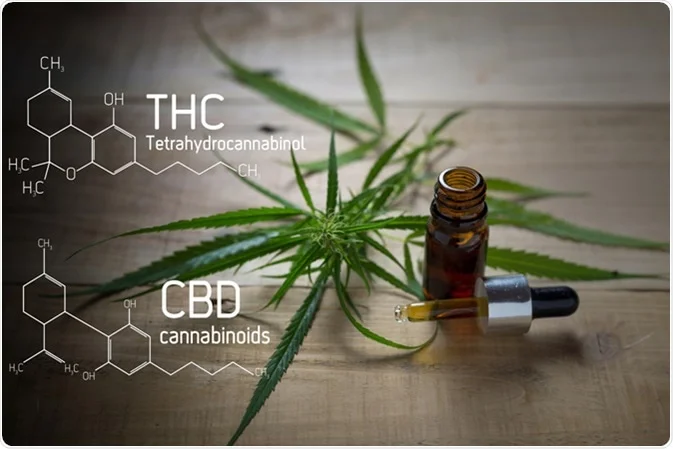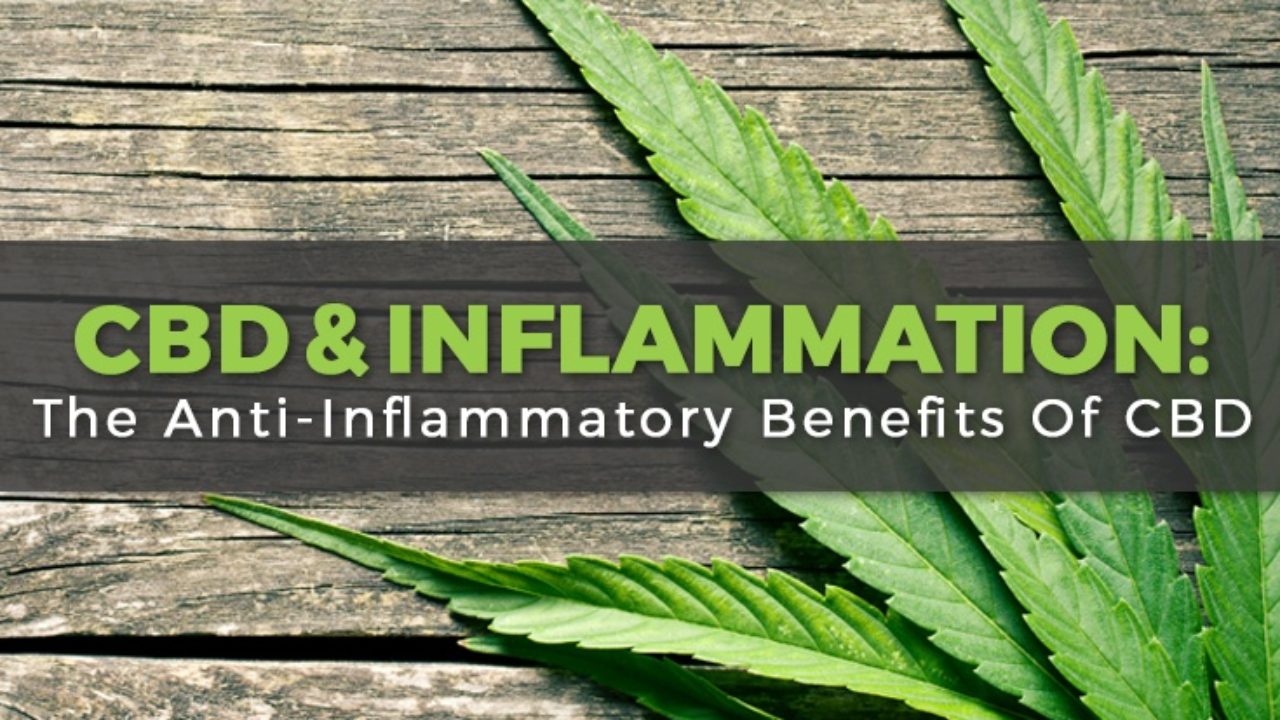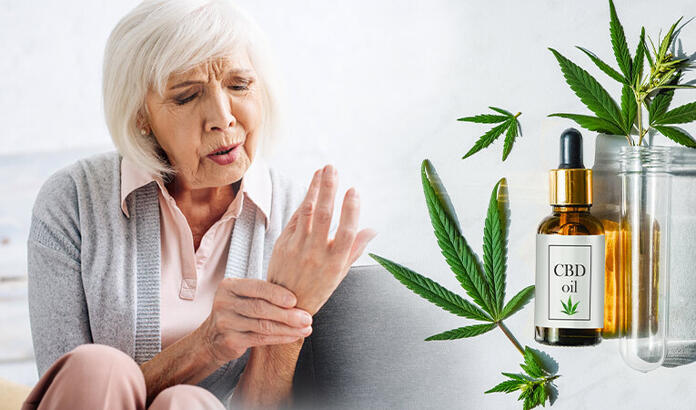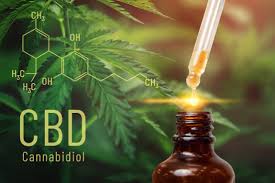Importance of CBD Dosage
When it comes to incorporating CBD into your wellness routine, understanding the importance of CBD dosage is crucial. CBD, short for cannabidiol, is a naturally occurring compound in the cannabis plant. Its therapeutic potential has gained significant attention recently, with many people turning to CBD for its various health benefits. However, finding the right dosage is paramount to maximizing the benefits and minimizing potential risks.
Determining the appropriate CBD dosage can be complex, as it varies from person to person. Factors such as body weight, individual tolerance, and the specific condition being treated all play a role in determining the optimal dosage. Additionally, the form in which CBD is consumed, whether it be CBD gummies, CBD capsules, or CBD tinctures, can also affect the dosage.
By understanding the importance of CBD dosage, individuals can ensure they are getting the most out of their CBD experience. Taking too little CBD may not provide the desired effects while taking too much could lead to unwanted side effects. Therefore, finding the right balance is crucial for achieving the desired therapeutic outcomes.
In the following sections, we will delve deeper into the factors that affect CBD dosage, explore different forms of CBD, and provide guidelines for determining the appropriate dosage for your specific needs. Additionally, we will address potential side effects and precautions and the importance of consulting with a medical professional to ensure a safe and effective CBD journey. So, let’s embark on this comprehensive guide to mastering CBD dosage and unlocking the full potential of this remarkable compound.
Understanding CBD Dosage
To master the art of CBD dosage, it is crucial to have a solid understanding of what CBD actually is, the factors that can affect its dosage, and the different forms in which it is available. By delving into these key aspects, you can confidently navigate the CBD world and make informed decisions about the dosage that best suits your needs.
What is CBD?
CBD, or cannabidiol, is a naturally occurring compound found in the cannabis plant. It is one of the many cannabinoids present in cannabis, alongside THC (tetrahydrocannabinol), but unlike THC, it does not produce any psychoactive effects. This means CBD does not cause the “high” associated with cannabis use.
CBD has gained significant attention recently due to its potential therapeutic benefits. Research suggests it may relieve various conditions, ranging from chronic pain and inflammation to anxiety and depression. Moreover, CBD is known for its antioxidant properties and potential to promote well-being.
Factors Affecting CBD Dosage
Determining the appropriate CBD dosage for an individual is not a one-size-fits-all endeavor. Several factors can influence the optimal dosage for each person. These factors include:
- Body weight: A person’s weight can affect how their body processes CBD. Generally, individuals with higher body weights may require higher dosages to achieve the desired effects.
- Individual condition: The specific condition or symptoms being targeted can impact the ideal CBD dosage. Chronic pain or epilepsy may require higher doses, while milder issues may require lower doses.
- Tolerance: CBD tolerance can vary from person to person. Some individuals may find relief with lower doses, while others may require higher amounts over time to achieve the same effects.
- Metabolism: Each person’s metabolism is unique, affecting how CBD is processed and eliminated from the body. This can influence how long the effects of CBD last and how frequently doses may need to be taken.
- Product potency: The concentration of CBD in the product being used is an important factor to consider. Different CBD products have varying strengths, so dosage adjustments may be necessary depending on the potency.
Different Forms of CBD
CBD is available in various forms, each offering its advantages and considerations. These forms include:
- CBD oil: CBD oil is one of the most popular and versatile forms of CBD. It can be taken orally by placing drops under the tongue or added to food and beverages. CBD oil is known for its fast-acting effects and ease of use.
- CBD capsules: CBD capsules provide a convenient and precise way to consume CBD. Each capsule contains a pre-measured dose of CBD, making it easy to track your dosage. Capsules are a great option for individuals who prefer a tasteless and discreet method of consumption.
- CBD edibles: CBD-infused edibles, such as gummies or chocolates, offer a tasty and enjoyable way to incorporate CBD into your routine. These edibles often come in pre-dosed servings, making it simple to control your dosage.
- CBD topicals: CBD topicals, such as creams, lotions, and balms, are designed for external use and can be applied directly to the skin. They are commonly used for localized relief, targeting specific areas of discomfort or inflammation.
- CBD vaping: CBD can also be inhaled through vaporization. CBD vape oils or e-liquids are heated and inhaled using a vaporizer or vape pen. Vaping allows for rapid absorption of CBD into the bloodstream, resulting in quick effects.
By understanding the different forms of CBD and their unique characteristics, you can choose the method that best suits your preferences and desired outcomes.
Now that you have a solid grasp of CBD, the factors that can affect its dosage, and the various forms in which it is available, it’s time to explore how to determine the right CBD dosage for your individual needs.
Determining the Right CBD Dosage
Remember a few key considerations when finding the appropriate CBD dosage for your needs. By taking the time to determine the right dosage, you can optimize the benefits of CBD while minimizing any potential side effects. This section will explore three important factors to consider when determining your CBD dosage: starting low and going slow, considering body weight and condition, and consulting a medical professional.
Start Low and Go Slow
One of the fundamental principles of CBD dosing is to start with a low dose and gradually increase it over time. This approach allows your body to adjust to the effects of CBD and helps you find the optimal dosage for your individual needs. By starting low and going slow, you can minimize the risk of experiencing any unwanted side effects.
Initially, starting with a low dosage, such as 5-10 milligrams of CBD per day is recommended. This conservative approach allows you to gauge how your body responds to CBD and gradually increase the dosage as needed. It’s important to remember that everyone’s body is different, so what works for one person may not work for another. Pay attention to how your body reacts and adjust the dosage accordingly.
Consider Body Weight and Condition
Another factor to consider when determining your CBD dosage is your body weight and the specific condition you’re trying to address. CBD affects individuals differently, and factors such as body weight, metabolism, and the severity of the condition can all affect how much CBD you need.
As a general guideline, taking 1-6 milligrams of CBD per 10 pounds of body weight is recommended. For example, if you weigh 150 pounds, a starting dosage of 15-90 milligrams of CBD per day may be appropriate. However, it’s important to note that these are just general recommendations, and it’s always best to consult a medical professional for personalized advice.
Consult with a Medical Professional
Consulting with a medical professional is wise when determining the right CBD dosage. They can provide valuable insights and guidance based on your needs and medical history. A healthcare provider can consider any existing medications or conditions you may have and help you find the appropriate CBD dosage to complement your overall wellness routine.
By working with a medical professional, you can ensure that you’re taking CBD safely and effectively. They can also help monitor your progress and make any necessary adjustments to your dosage over time, ensuring that you’re getting the most out of your CBD experience.
Remember, finding the right CBD dosage is a journey that requires patience and self-awareness. By starting low and going slow, considering your body weight and condition, and seeking the guidance of a medical professional, you can confidently navigate the world of CBD dosing and discover the optimal dosage for your unique needs.
CBD Dosage Chart
When it comes to using CBD, finding the right dosage can be a bit of a challenge. With so many factors to consider, it’s important to have some general guidelines to help you navigate the world of CBD dosing. This section will explore the General Dosage Guidelines and provide some Dosage Recommendations for Specific Conditions to assist you in your CBD journey.
General Dosage Guidelines
CBD dosing is not a one-size-fits-all approach. The optimal dosage can vary depending on body weight, individual tolerance, and the desired effects. It is generally recommended to start with a low dose and gradually increase until you find the right balance for your needs. This approach allows your body to adjust and helps you avoid any potential side effects.
Here are some general dosage guidelines to consider:
- Low Dosage: A low dose of 5-10 milligrams (mg) per day may be a good starting point for beginners or those more sensitive to CBD. This allows you to gauge how your body responds to CBD and gradually increase as needed.
- Moderate Dosage: If you have some experience with CBD or are looking for more noticeable effects, a moderate dose of 10-20 mg per day may be suitable. This dosage range is commonly used for general wellness or mild symptoms.
- High Dosage: Individuals seeking more potent effects or relief from specific conditions may require a higher dosage. A high dose typically ranges from 20-50 mg daily, but it’s important to consult a medical professional to determine the appropriate dosage for your needs.
Remember, these guidelines are just a starting point, and everyone’s response to CBD can vary. It’s essential to listen to your body and adjust your dosage accordingly.
Dosage Recommendations for Specific Conditions
CBD has gained popularity for its potential therapeutic benefits across various conditions. While research is ongoing, anecdotal evidence suggests that CBD may be helpful for various ailments, including pain relief, inflammation, anxiety, and more.
Here are some dosage recommendations for specific conditions:
- Pain Relief: A 20-40 mg daily dosage may be beneficial for individuals seeking relief from chronic pain. This dosage can be split into multiple smaller doses throughout the day for better absorption and longer-lasting effects.
- Anxiety and Stress: A dosage of 10-30 mg per day is commonly recommended to manage anxiety and stress. It’s important to note that individual responses may vary, so it’s advisable to start with a lower dose and gradually increase if needed.
- Sleep Disorders: For individuals struggling with insomnia or other sleep disorders, a 20-40 mg daily dosage before bedtime may promote relaxation and improve sleep quality.
- Inflammatory Conditions: CBD’s potential anti-inflammatory properties make it a promising option for conditions such as arthritis. A 10-30 mg daily dosage may help reduce inflammation and alleviate symptoms.
It’s crucial to remember that these dosage recommendations are not set in stone and should be used as a starting point. Each individual may require a different dosage based on their unique circumstances. Consulting with a medical professional knowledgeable about CBD can provide personalized guidance and ensure the best possible outcomes.
In the next section, we will explore how to adjust your CBD dosage and find the optimal balance for your needs.
*[CBD]: Cannabidiol
Adjusting CBD Dosage
Once you’ve determined the initial CBD dosage that works for you, it’s important to understand that it may not be a one-size-fits-all solution. Everyone’s body is unique, and what works for one person may not work for another. That’s why adjusting your CBD dosage may be necessary to achieve optimal results.
Monitoring Effects and Symptoms
When adjusting your CBD dosage, monitoring your body’s response to the cannabinoid is crucial. Pay close attention to any changes in your symptoms or the effects you’re experiencing. Are you noticing a reduction in pain, anxiety, or inflammation? Or are you not feeling any difference at all?
By closely examining how your body responds to CBD, you can make informed decisions about increasing or decreasing your dosage. It’s also important to note any potential side effects you may be experiencing, as this can indicate that your dosage is too high.
Gradual Increases or Decreases
When adjusting your CBD dosage, making gradual changes rather than drastic adjustments all at once is recommended. This allows your body to adapt to the new dosage and helps you better gauge its effects.
If you feel your CBD dosage is not providing the desired results, you may consider increasing it slightly. However, it’s important to do so in small increments. For example, you can increase your dosage by 5 mg daily and observe how your body responds over time.
On the other hand, if you’re experiencing unwanted effects or feel that your current dosage is too high, you may consider decreasing it. Again, making small adjustments is crucial to allow your body to readjust.
Finding the Sweet Spot
The goal of adjusting your CBD dosage is to find the sweet spot where you experience the maximum benefits without any unwanted side effects. This is a highly individualized process and may take some time to achieve.
By monitoring your symptoms, gradually adjusting your dosage, and being patient with the process, you can find the optimal CBD dosage that works best for you. Remember, it’s always a good idea to consult with a medical professional or a CBD expert who can provide personalized guidance based on your needs.
In conclusion, adjusting your CBD dosage is an essential part of the journey towards finding the right balance for your body. By carefully monitoring your symptoms, making gradual changes, and striving to find the sweet spot, you can optimize your CBD experience and reap the maximum benefits this incredible compound offers.
For more information on CBD and its benefits, check out our article on what is CBD.
Potential Side Effects and Precautions
While CBD is generally well-tolerated by most individuals, it’s important to be aware of potential side effects and take necessary precautions. Understanding these aspects will help ensure a safe and positive experience with CBD.
Common Side Effects
CBD may cause mild side effects, although they are usually temporary and subside as the body adjusts to the compound. These side effects may include:
- Dry mouth: CBD can temporarily reduce saliva production, leading to a dry sensation in the mouth. Staying hydrated can help alleviate this discomfort.
- Drowsiness: Some individuals may experience drowsiness or a feeling of relaxation after taking CBD. It’s important to avoid driving or operating heavy machinery if you feel excessively tired.
- Changes in appetite: CBD has been known to affect appetite, potentially leading to increased or decreased hunger. Monitoring your food intake and adjusting accordingly can help manage this effect.
- Diarrhea: In rare cases, CBD consumption may cause digestive issues such as diarrhea. If this occurs, lowering the dosage or discontinuing use and consulting with a healthcare professional is advisable.
Interactions with Medications
If you take any medications, you must be aware of potential interactions between CBD and certain drugs. CBD can interact with liver enzymes responsible for metabolizing medications, potentially affecting their efficacy and concentration in the bloodstream.
It’s important to consult with a healthcare professional or pharmacist before incorporating CBD into your routine, especially if you take blood thinners, anti-seizure medications, or antidepressants. They can provide valuable guidance on safely combining CBD with your current medications.
Safety Considerations
When using CBD, there are a few safety considerations to keep in mind:
- Quality and Legality: Ensure that the CBD products you purchase are from reputable sources and comply with legal regulations in your jurisdiction. This will help ensure you consume high-quality CBD that meets safety standards.
- Pregnancy and Breastfeeding: While there is limited research on the effects of CBD during pregnancy and breastfeeding, it is generally recommended to avoid CBD during these periods to err on the side of caution.
- Individual Sensitivities: Each person may respond differently to CBD due to variations in body chemistry. It’s important to start with a low dosage and gradually increase it while monitoring your body’s response. If you experience any adverse effects, it is advisable to discontinue use and consult with a healthcare professional.
Individuals can make informed decisions and ensure their well-being by understanding CBD use’s potential side effects, medication interactions, and safety considerations. Remember, it’s always best to consult with a healthcare professional before incorporating CBD into your routine, especially if you have any underlying medical conditions or are taking medications.
Conclusion
In conclusion, mastering CBD dosage is crucial for anyone seeking to harness the full potential of this remarkable cannabinoid. By understanding the importance of CBD dosage and considering various factors that can influence it, individuals can optimize their experience and achieve desired results.
CBD, or cannabidiol, is a non-intoxicating compound derived from the cannabis plant. It offers many potential health benefits, including pain relief, reduced inflammation, improved sleep, and even support for mental health conditions. However, finding the right dosage can be a bit of a journey.
Factors such as body weight, individual tolerance, and the severity of the treated condition all play a role in determining the appropriate CBD dosage. It is always advisable to start with a low dose and gradually increase it until the desired effects are achieved. Consulting with a medical professional can provide valuable guidance and ensure safe usage.
To assist in determining the right CBD dosage, a dosage chart can be a useful tool. General dosage guidelines can provide a starting point, while dosage recommendations for specific conditions can offer more targeted guidance. However, it’s important to note that these recommendations are not one-size-fits-all and may require some adjustment based on individual needs.
Monitoring the effects and symptoms is crucial when adjusting CBD dosage. Paying close attention to how the body and mind respond to different doses can help find the “sweet spot” – the dosage that provides the optimal balance of benefits without any unwanted side effects.
Speaking of side effects, while CBD is generally well-tolerated, there are some potential side effects to be aware of. These can include dry mouth, drowsiness, and changes in appetite. Additionally, CBD may interact with certain medications, so it’s essential to consult with a healthcare professional if taking any prescription drugs.
In conclusion, CBD dosage is a personal journey that requires patience, experimentation, and careful attention. By understanding the factors that influence dosage, consulting with professionals, and monitoring effects, individuals can confidently navigate their CBD experience and maximize its potential benefits.
Remember, knowledge is power. If you want to learn more about CBD, its benefits, potential side effects, and the different forms it comes in, be sure to check out our comprehensive articles on CBD, CBD gummies, and the benefits of CBD.
Stay informed, stay empowered, and enjoy the journey towards optimal well-being with CBD.





